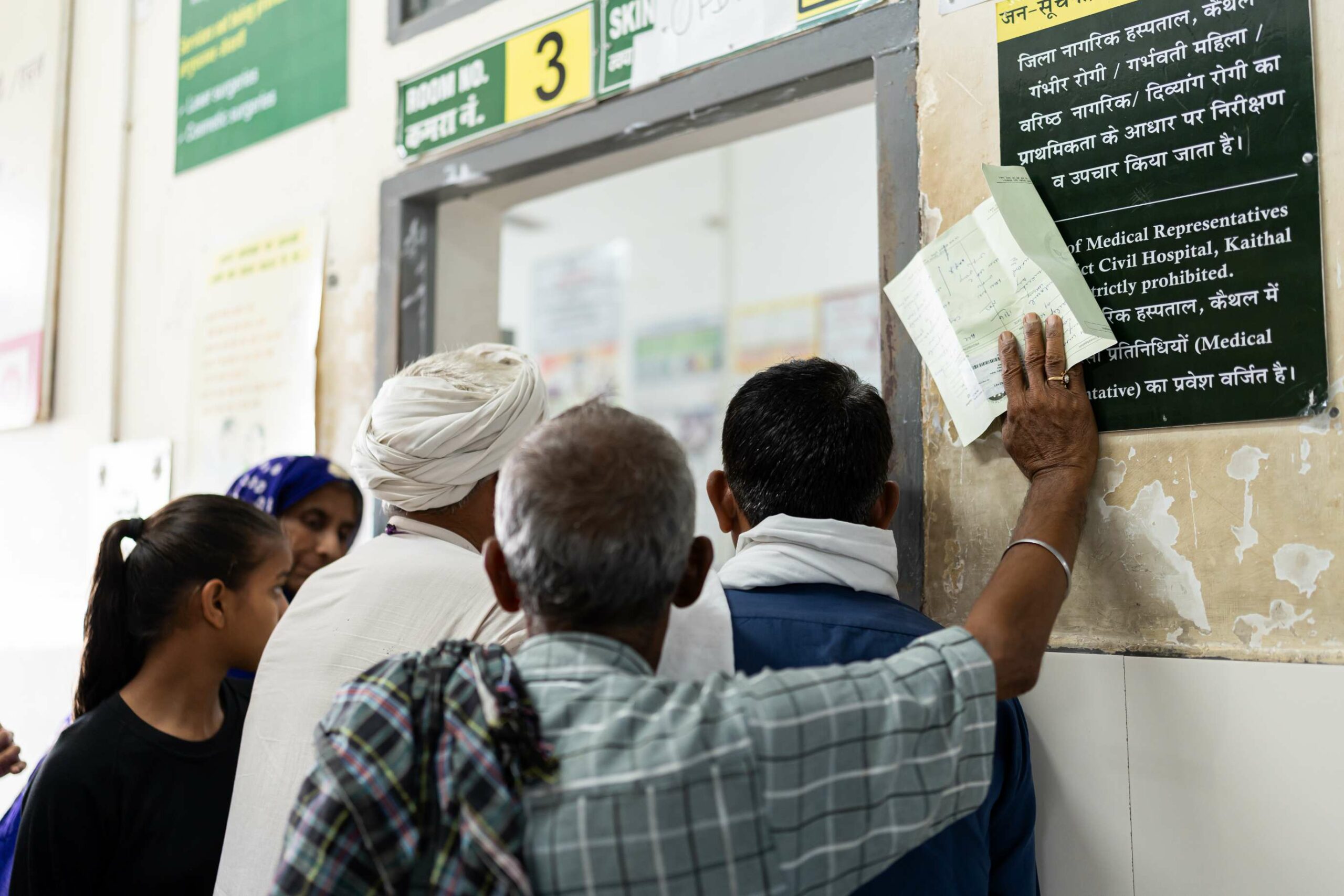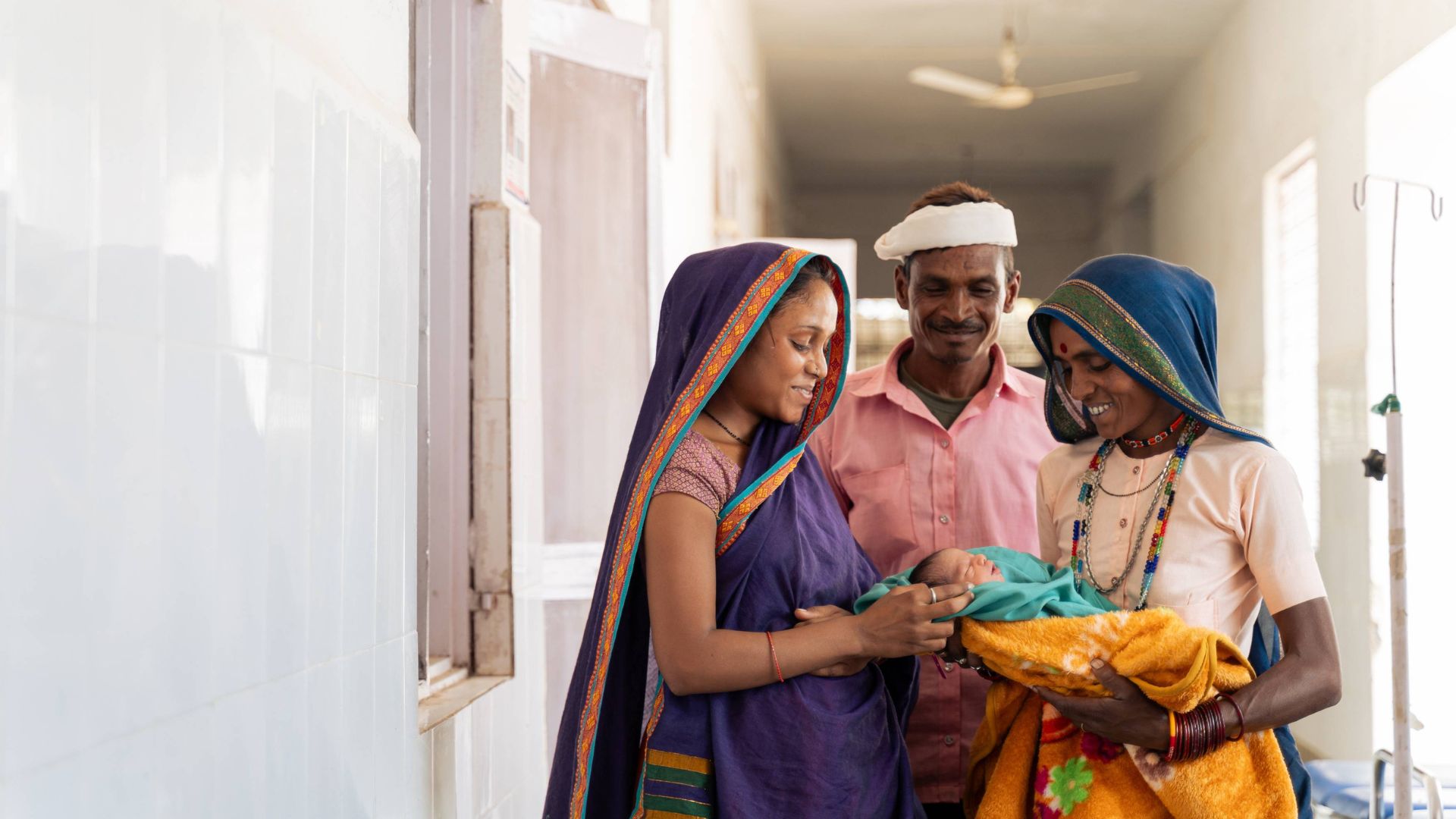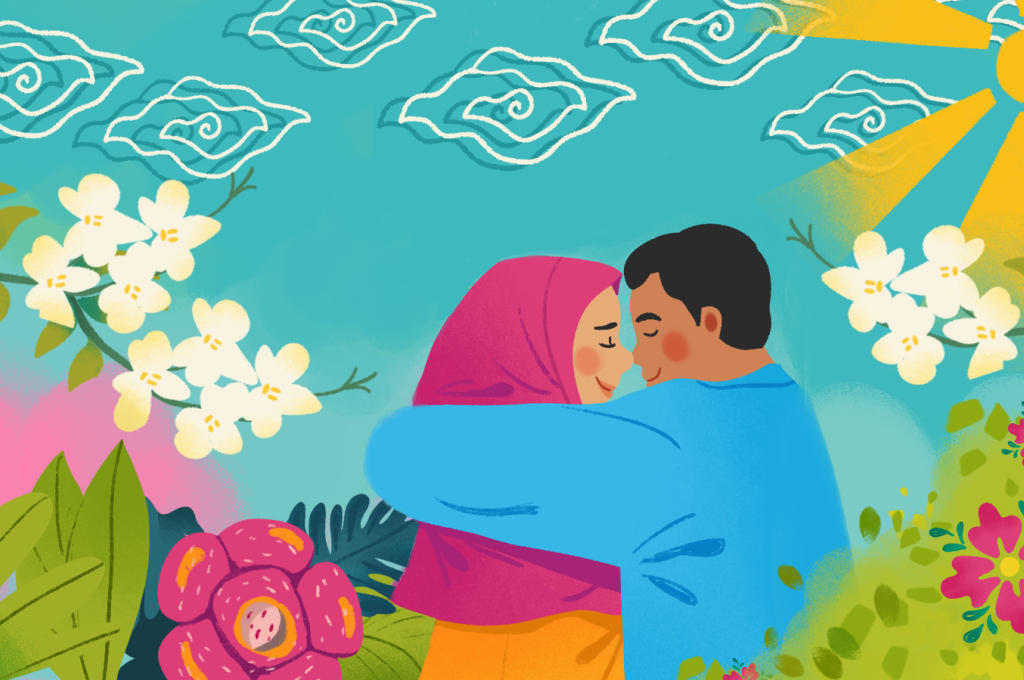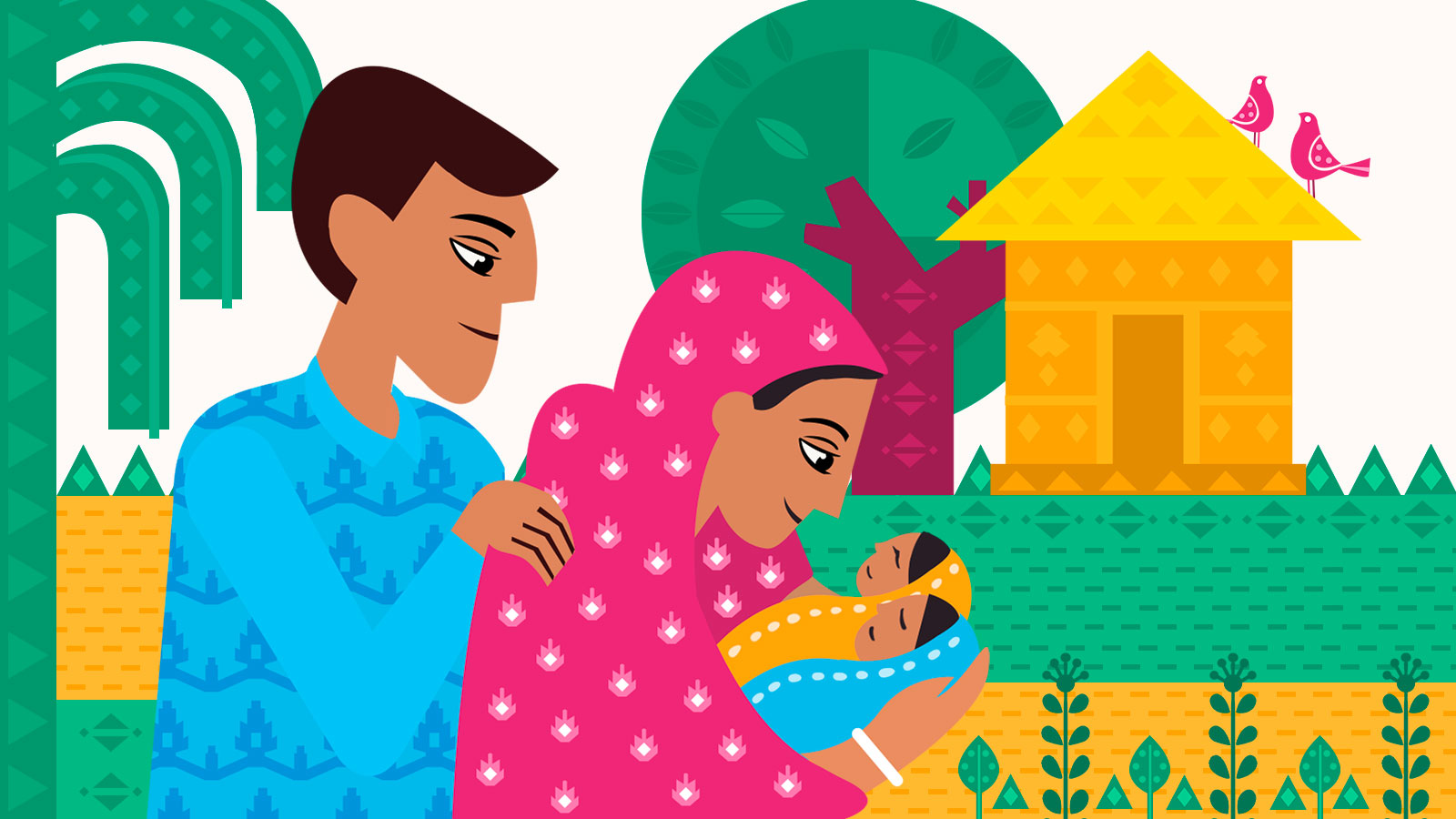

In sickness and in health: New parents navigate unexpected challenges
This story is part of our 10-year anniversary celebration, honoring the many ways in which families, caregivers, communities, and health systems come together to care.
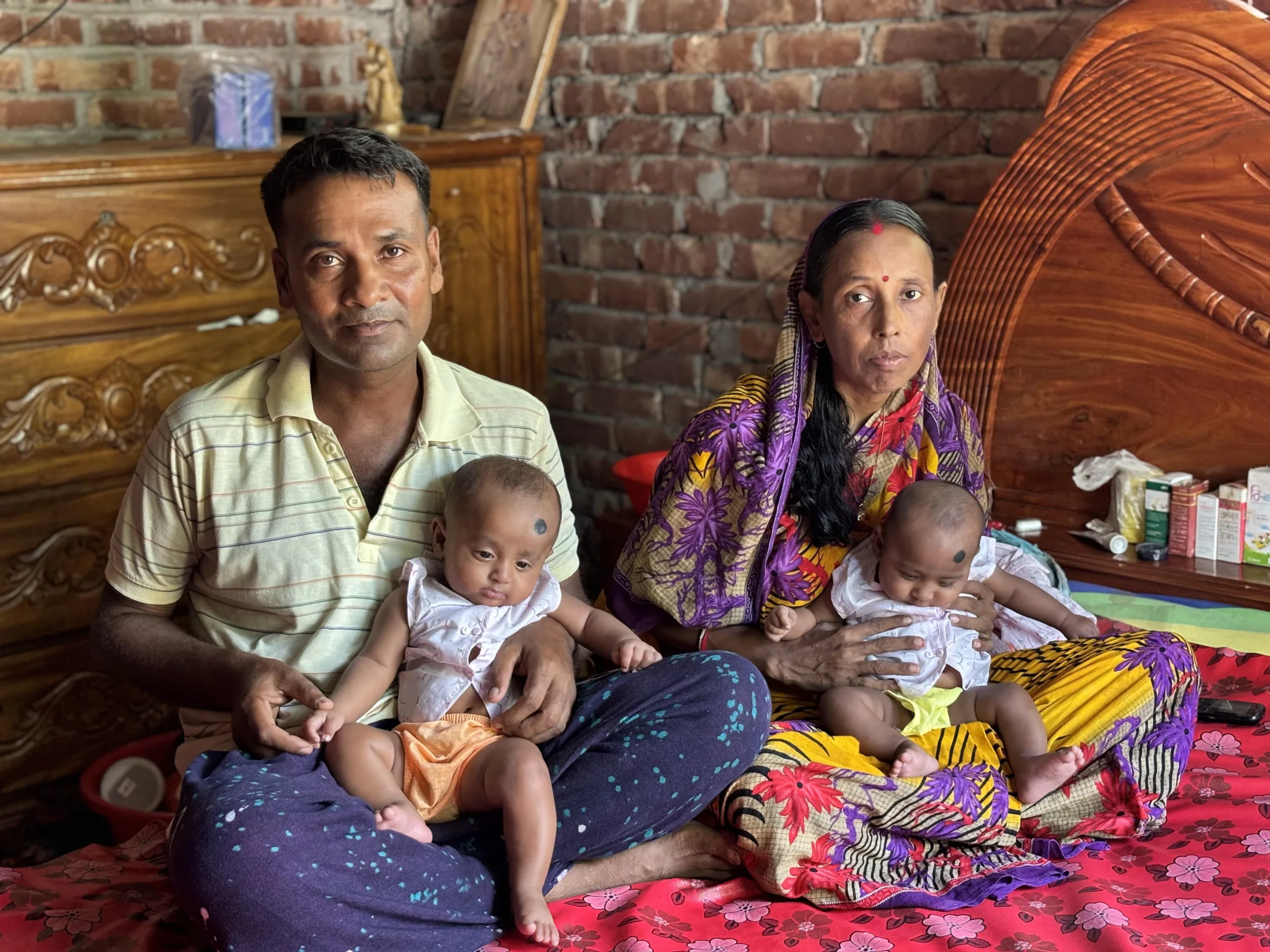
“With both my babies admitted to the SCANU (Special Care Newborn Unit) and my wife experiencing high blood pressure post-delivery, I had three patients to take care of alone. I couldn’t understand what was happening around me,” shares Uttam Kumar Bishwas, reflecting on the day that changed everything.
After trying to conceive for 13 long years, Uttam and his wife Hoimonty were blessed with twins earlier this year, following a successful IVF procedure. “I was so happy when I first found out that I was going to have a son and a daughter,” he reminisces. However, what started as a joyful journey of parenthood soon became an overwhelming maze of health scares.
Uttam recalls the frantic ordeal of trying to find a hospital when his wife’s blood pressure spiked, “I rushed her to the nearest hospital in Jhenaidah, but they refused to admit us and referred us to Jessore. The hospital there also turned us away, suggesting we go to Khulna, where we were refused again. Finally, we managed to get treatment at Dhaka Medical College Hospital — which is more than 150 km away from our village.” It was here, at Dhaka Medical College, Bangladesh, that they would later receive crucial caregiving guidance through the Care Companion Program (CCP), a resource that would help them navigate their children’s health challenges.
In addition to his wife’s treatment, their newborns also faced complications.
While the son was discharged after ten days and sent to stay with his grandmother, their daughter, who had abnormally high blood sugar, had to stay in the SCANU for a month. “Even after 30 days, the doctors couldn’t identify the cause of the spiking sugar and recommended transferring her to a more specialized facility. After spending 2500-3000 taka everyday for medicines for my daughter and adding the costs of check-ups for all three of them, we couldn’t afford to spend more on additional tests to investigate the issue further. I was running so low on money that I didn’t know how I would get back home from Dhaka.”
Once their daughter’s health was stable, both husband and wife decided to go home, save up some money, and return to Dhaka in a couple of months to do the tests. Meanwhile, political unrest escalated throughout the country, cutting off their access to the capital city. Soon after, Uttam’s father had a heart attack, further delaying their plans to do the test.
Making the situation even more challenging is the fact that both Uttam and Hoimonty left their jobs to focus entirely on starting a family. But it has gotten increasingly difficult to manage household expenses, with their children needing 20,000 taka of milk each month. Currently, Uttam works as a farmer in the rice fields to make sure his children have enough to eat. Though he often misses his old job at a local nonprofit, he knows returning is unlikely due to his caregiving duties at home, which take up a lot of his time.
“We disinfect everything — from the bed to the bathwater. We boil all the feeders of the babies,” he shares. Uttam credits much of his caregiving knowledge to the training he received through the CCP at Dhaka Medical College. “They gave us practical lessons on how to hold a baby, how to wash our hands, cut fingernails, and even how to burp the baby during feeding. We didn’t know anything about taking care of babies before this, it was all new to us.”
Hoimonty echoes, “It was especially helpful for mothers like me whose babies were in the special care unit and needed extra care. The sessions were so practical and I learned so much about baby care. People should be more aware of these programs. I try to share my learnings and experiences as much as I can with other women and mothers in my neighborhood.”
Though her daughter’s health is better now, Hoimonty says that she will only be tension-free when they’re able to see the doctors with the tests completed. Until then, she’s grateful to be able to share this journey of parenthood with her husband. “He has done so much for me and the babies, which I really appreciate. Not every husband does that,” she concludes.
A special thanks to Abhijit Sarker Arka and Soumitro Das for bringing this story to life, and to Kawshick Biswas for the illustration!

